POWER

INETTT facilitates global cooperation for just energy transitions
In September, the International Network of Energy Transition Think Tanks (INETTT), hosted by Agora Energiewende, held its annual meeting in Warsaw, Poland – co-organized with Forum Energii. Discussions underscored the reality that while countries often face similar energy challenges their paths through the energy transition vary—requiring strategies tailored to specific regional and political contexts. Key priorities included the role of public finance and political will, fair trade practices and domestic value added, energy access, robust industrial strategies that maintain jobs and actively engage workers through training and education, energy security, and international cooperation.
INETTT is a vital platform for collaboration across borders and sectors, helping countries address shared challenges and develop solutions for a cleaner, fairer future.
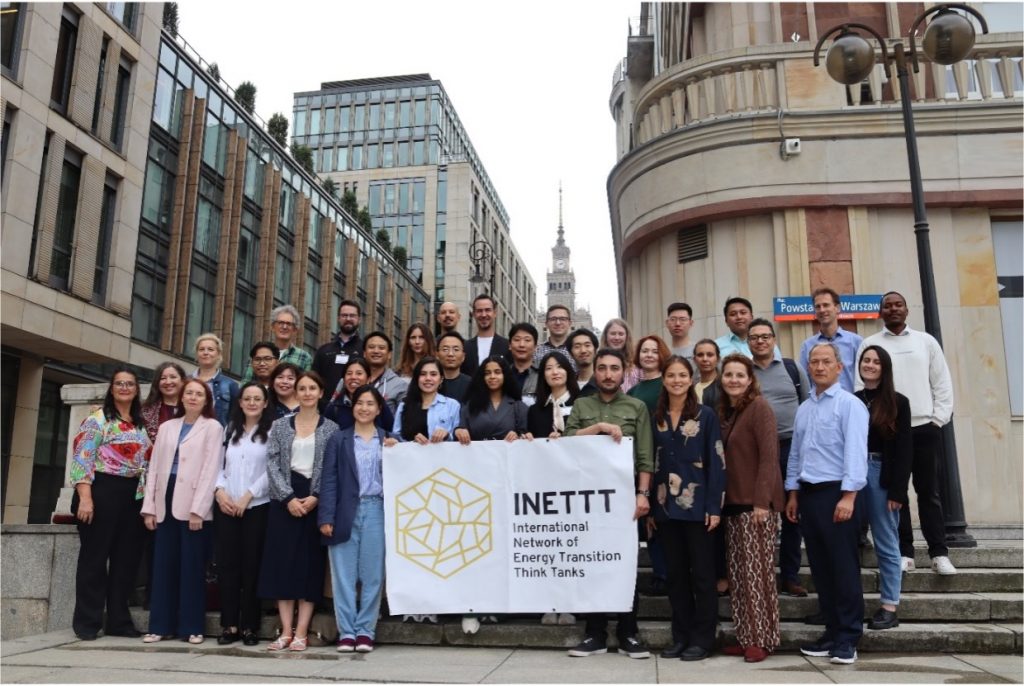

Agora Energiewende study shows how ambitious climate action would grow Europe’s economy
The investments needed to cut GHG emissions by 90 percent by 2040 would help grow the EU economy by around 2 percent, according to a new Agora Energiewende study on the macroeconomic impacts of Europe’s transition to climate neutrality. Investments in cleantech, net-zero infrastructure, and building renovations would strengthen EU manufacturing, create jobs, and foster economic convergence between Western and Eastern Europe. The study also finds that while carbon pricing revenues rise significantly in the medium term, revenues fall in the 2030s as the consumption of fossil-based products, and related tax revenues, decline. Agora proposes ways to ensure the continuity of EU climate funding and enhance its impact. These include obliging EU governments to produce climate investment needs assessments, “frontloading” revenues from the bloc’s future carbon market for buildings and transport to unlock up to 36 billion euros for investments in these sectors, and a new fund under the next EU budget focused on implementing the EU Green Deal.
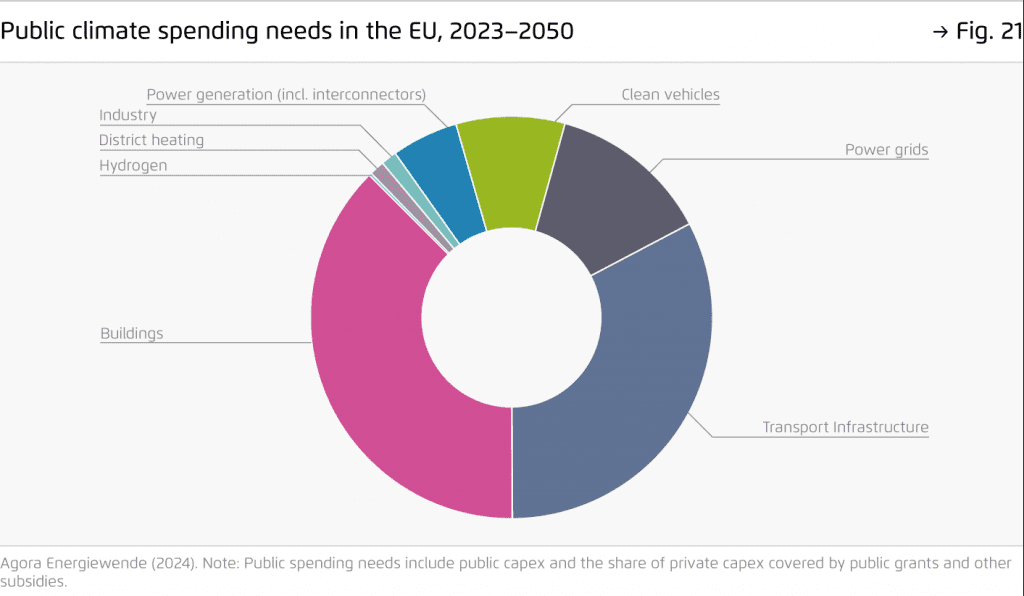
INDUSTRY

Agora Industry report shows embodied carbon policies key to net-zero buildings
A new report by Agora Industry outlines the importance of addressing embodied carbon emissions (ECE), referring to emissions from the manufacture, transport, installation, maintenance, and disposal of building materials. As modern houses and offices become more energy efficient, ECE accounts for up to 90 percent of their remaining carbon footprint. In Germany, it is estimated that ECE amounted to about 73 million tons of CO2e in 2023. To meet the country’s 2045 net-zero target, these emissions must be reduced by 90 percent over the next two decades. The report recommends several actions to achieve this, including circular construction practices, material substitution, and the use of low-emission building materials. It proposes mandatory ECE reporting from 2027 and phasing in limits from 2029 for new buildings. Encouraging demand for low-emission building materials can help industry shift to cleaner production without significantly increasing the cost of buildings in the long term.
APPLIANCES

New motor policy brings South Africa up to global benchmark
South Africa has introduced a new energy efficiency policy for electric motors, set to take effect in June 2025. The nation’s economy, which relies on energy-intensive industries, faces ongoing electricity deficits, including rolling brownouts and blackouts that affect both businesses and communities. Energy efficiency is a crucial tool for ensuring a more reliable power supply. CLASP modeling shows that industrial electric motor systems make up a large and growing share of national energy demand. In 2022, industrial motor systems in South Africa consumed 97 TWh of electricity, representing 52 percent of all final electricity demand—and this amount is expected to grow 2.5 times by 2050. This makes the new standard an important step in South Africa’s energy efficiency efforts. CLASP supported the policy with a techno-economic analysis and international best practices, helping South Africa align with global benchmarks. The policy is projected to prevent 40 Mt of CO2 emissions by 2050, equivalent to the annual emissions of 9.5 million gas-powered passenger vehicles. This will help reduce the strain on the national grid, lower operational costs for companies, and improve air quality for South Africans.
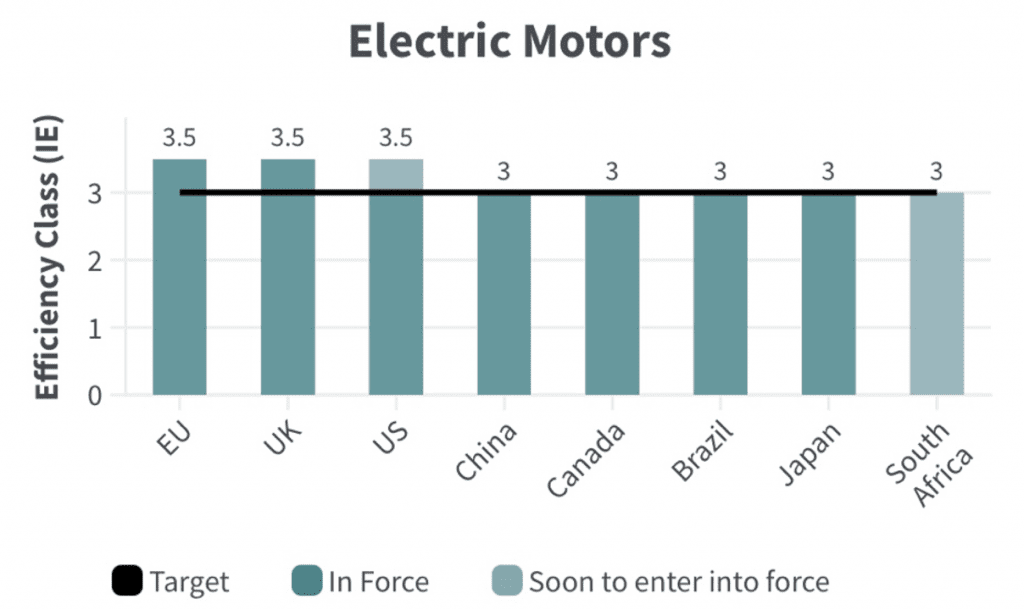
BUILDINGS

Indonesia adopts new energy efficiency measurement tool
Indonesia has created its first standardized tool to measure emissions reductions and energy savings from buildings. Developed collaboratively by GBPN and Indonesia’s Ministry of Public Works and Housing, this tool will help track the impact of green buildings, driving the country closer to its climate goals. By integrating this measurement tool into the ministry’s official platform, Indonesia will be able to make informed decisions that support sustainable construction. Fajar S. Hutahaean, Head of the Green Building Secretariat at the Ministry of Public Works and Housing, said, “Accurate measurement tools are essential in promoting green building practices. The tool will enable us to quantify emissions and energy savings effectively, integrated with the ministry’s official building management platform and supporting our national goals for sustainable development.” Beyond reducing carbon, the tool will promote energy savings, cut operational costs, and improve quality of life for Indonesians. GBPN is playing a key role in helping Indonesia achieve its sustainable development goals by empowering policymakers with clear data.
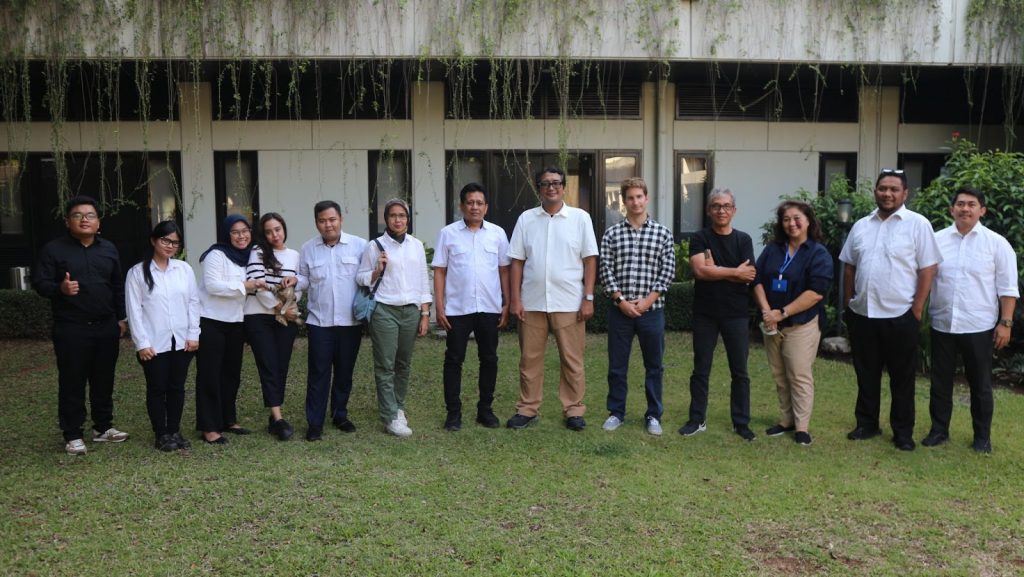
VEHICLES AND FUEL
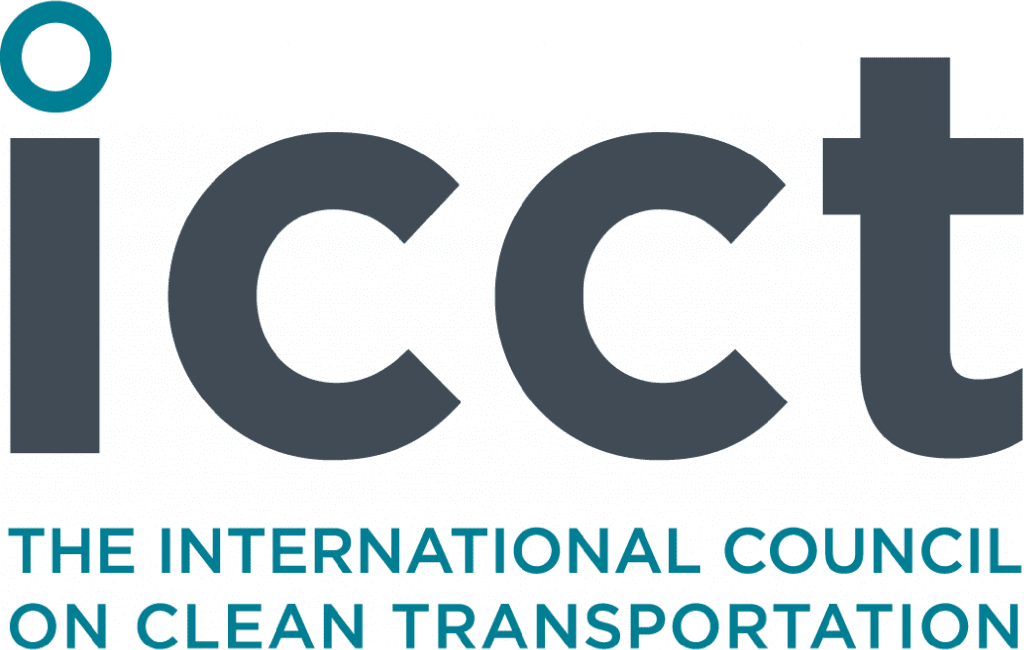
Major automakers in the red when it comes to using green steel
A new report by the International Council on Clean Transportation (ICCT) reveals that only four of the 17 major automakers selling vehicles in Europe and North America have committed to start using any fossil-free steel by 2030. The commitments total an estimated 2 percent of the global steel used by all these major automakers. When including commitments to use lower-emissions steel, this figure rises to only 4 percent. “The auto industry can play a pivotal role in cleaning one of the world’s dirtiest industries by committing to procure fossil-free steel. Their demand can send a powerful signal to the steel industry, but current commitments are far from sufficient,” said Dr. Marta Negri, ICCT Associate Researcher and lead author of the study. The ICCT report analyzes the global supply chain networks and GHG emissions intensity of steel supplied to the 17 major automakers in Europe and North America. The report also compares automaker commitments to procuring fossil-free steel in the future, and highlights opportunities to increase the use of fossil-free steel.
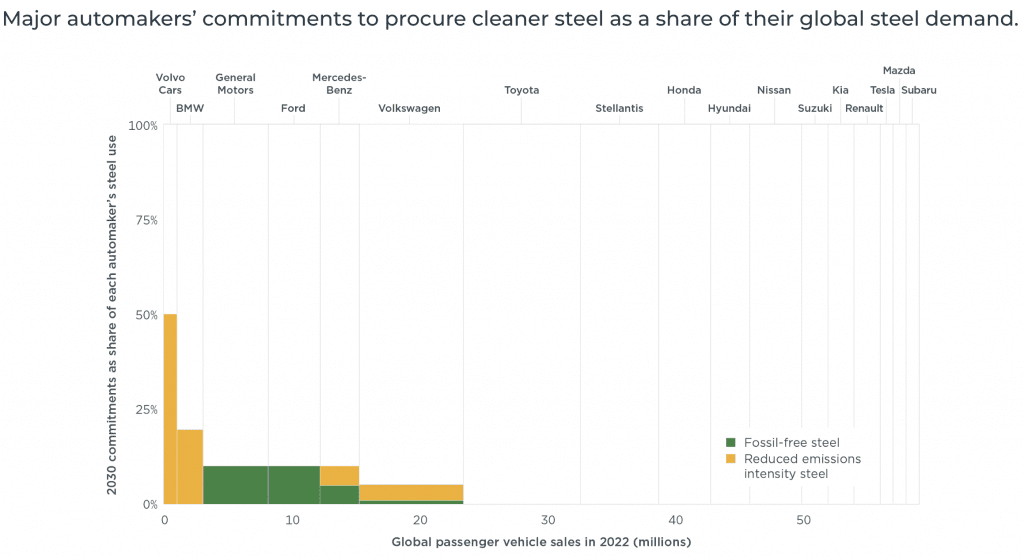
URBAN MOBILITY

In Chennai, India, sustainable parking reforms to reshape public space
Excessive or low-cost parking supply compounds emissions from road transport and leads to the inequitable use of urban space. To tackle this in Chennai, India, a city of more than 6 million people, ITDP India partnered with the Metropolitan Transport Authority to develop its new parking policy. The efforts of ITDP and the Authority recently culminated in the inclusion of parking reform in the Chennai Municipal 2024-2025 budget. The reform includes ITDP recommendations, such as investing parking revenue in street improvements, integrating parking management with broader planning strategies, and increasing pricing for on-street parking. This reform marks a major success for the region, reflecting the government’s commitment to investing in parking practices that prioritize street redesigns and more integrated city planning. Interested in bringing parking reform to your city? ITDP recently released a tool that allows anyone to estimate the economic and emissions impacts of parking reforms in their city.
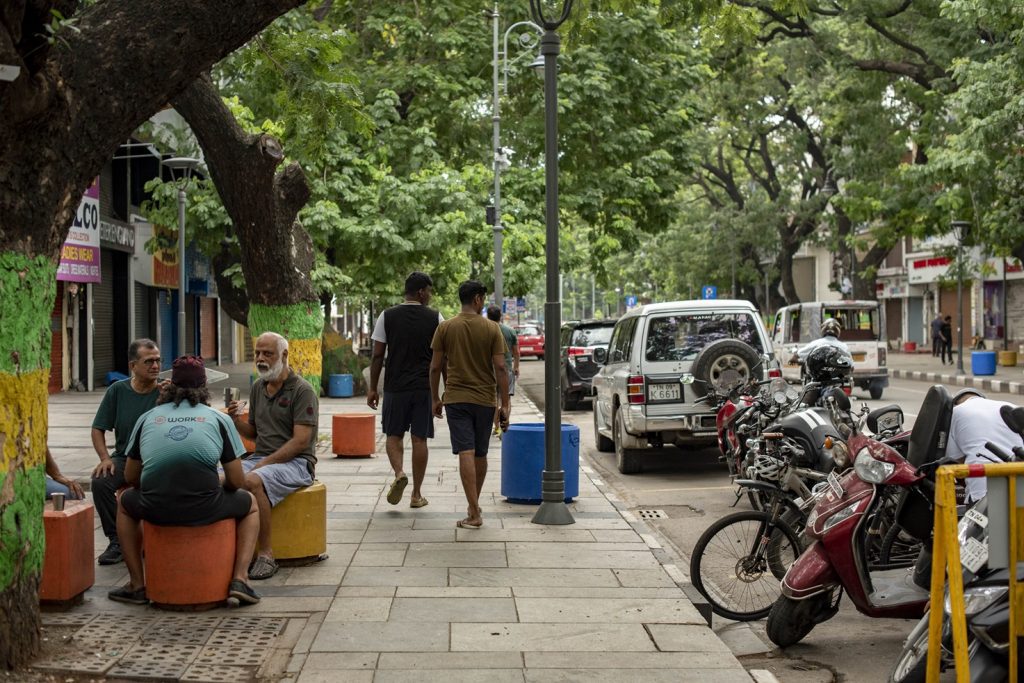
ALLIANCE

City bus electrification and energy justice take center stage at NY Climate Week
How can cities transition to all-electric public bus systems that serve everyone? And why is it essential to embed equity into climate policy for it to truly succeed? These were the central themes of Crux Alliance’s discussions at New York Climate Week, which brought together leading experts to explore how ambitious climate policies can not only reduce emissions but also enhance quality of life for all communities. Thank you to our co-hosts: the International Council on Clean Transportation, the Institute for Transportation and Development Policy, the Regulatory Assistance Project, the International Network of Energy Transition Think Tanks, New York Climate Exchange, Drive Electric Campaign, and Aspen Global Change Institute.
Missed the events? No worries! Catch up by reading our latest blog and watching the panel session recordings at the link below.







